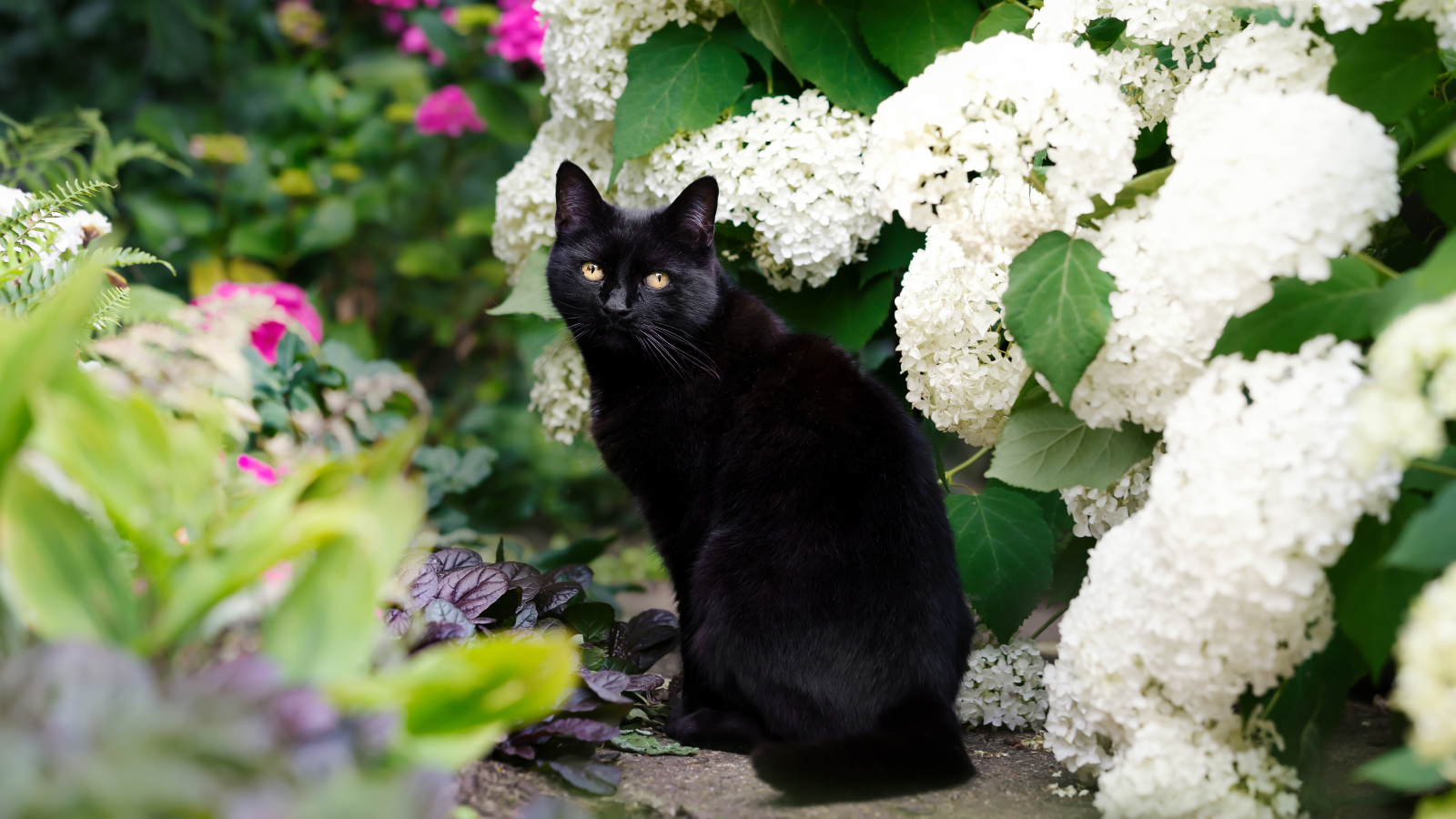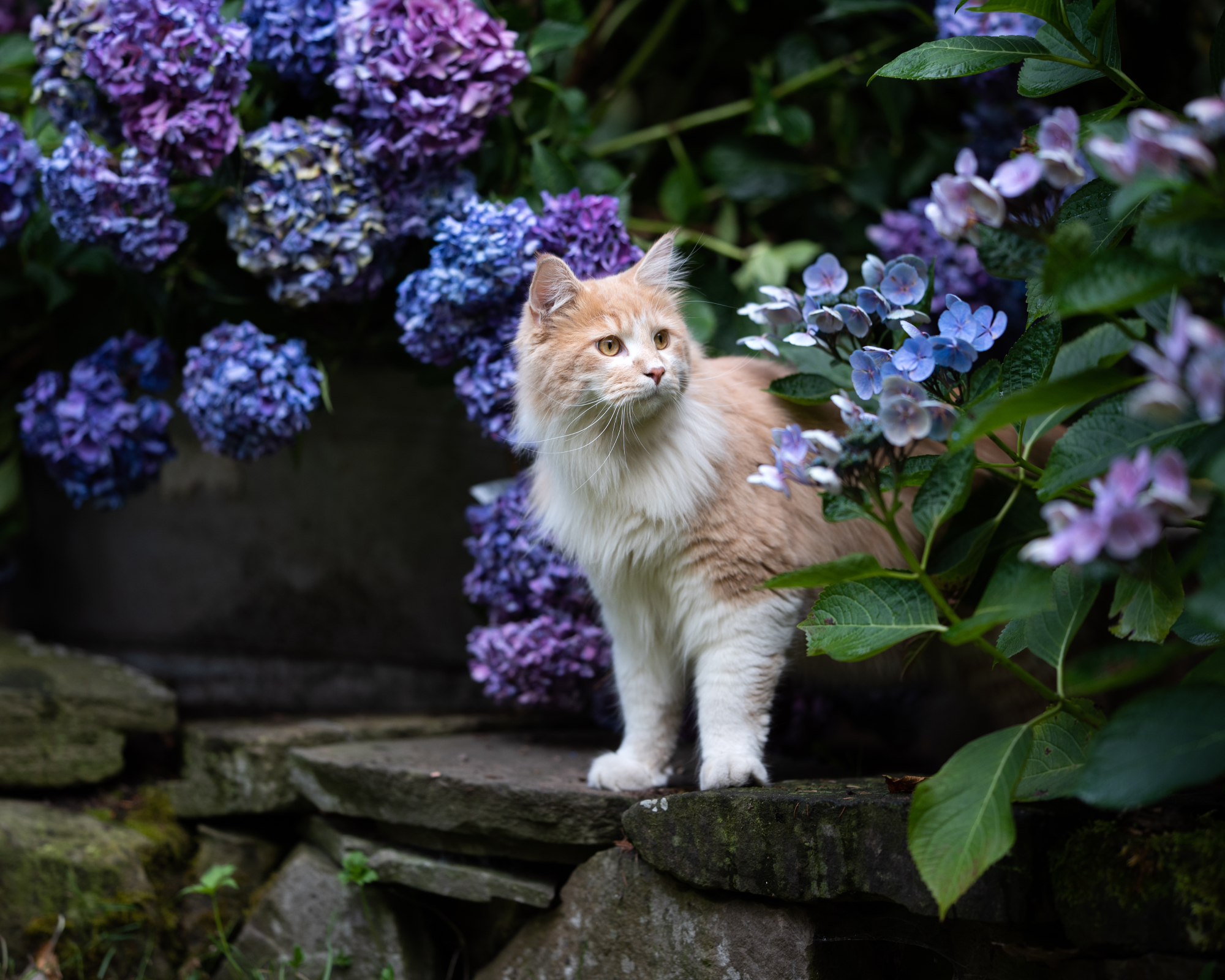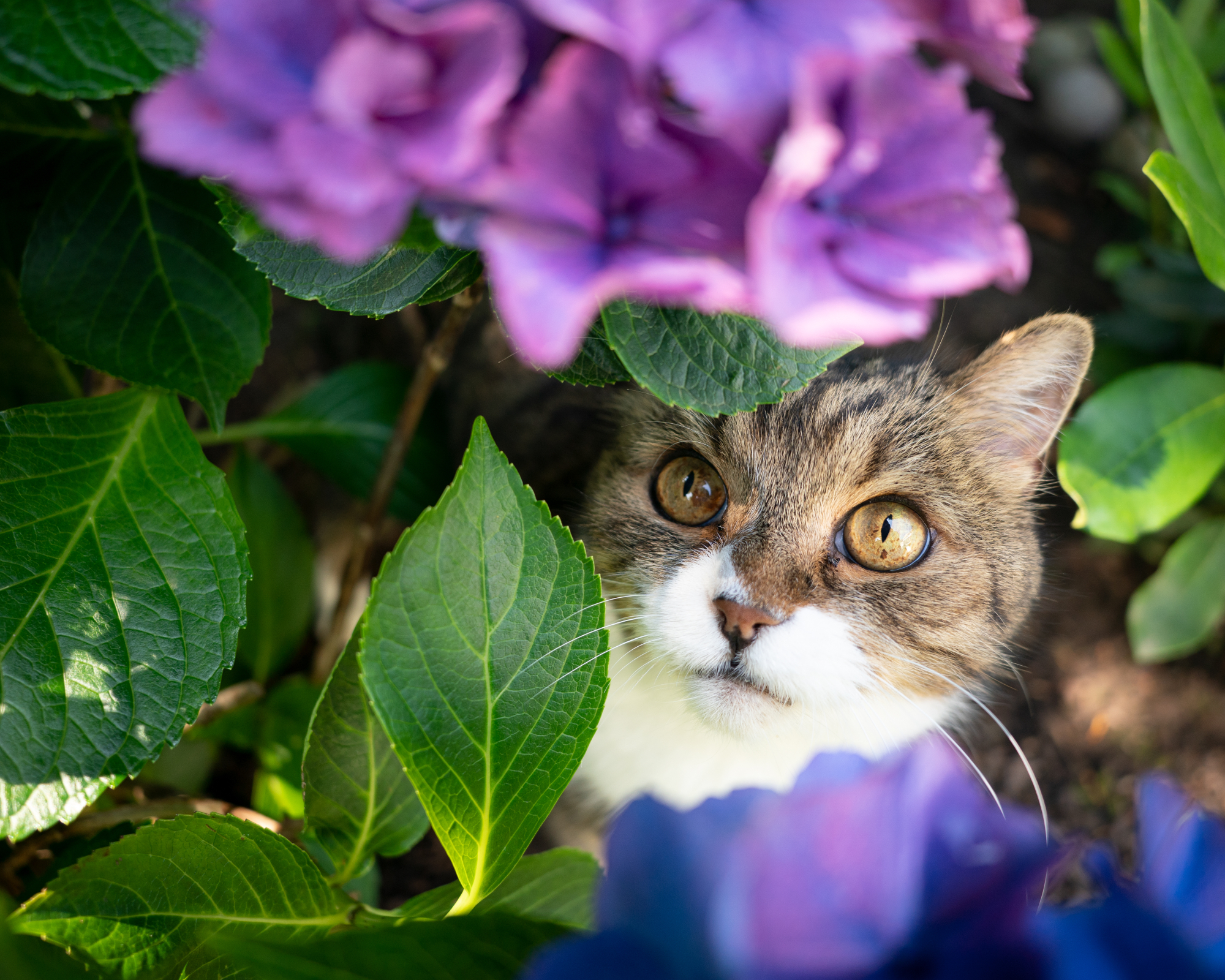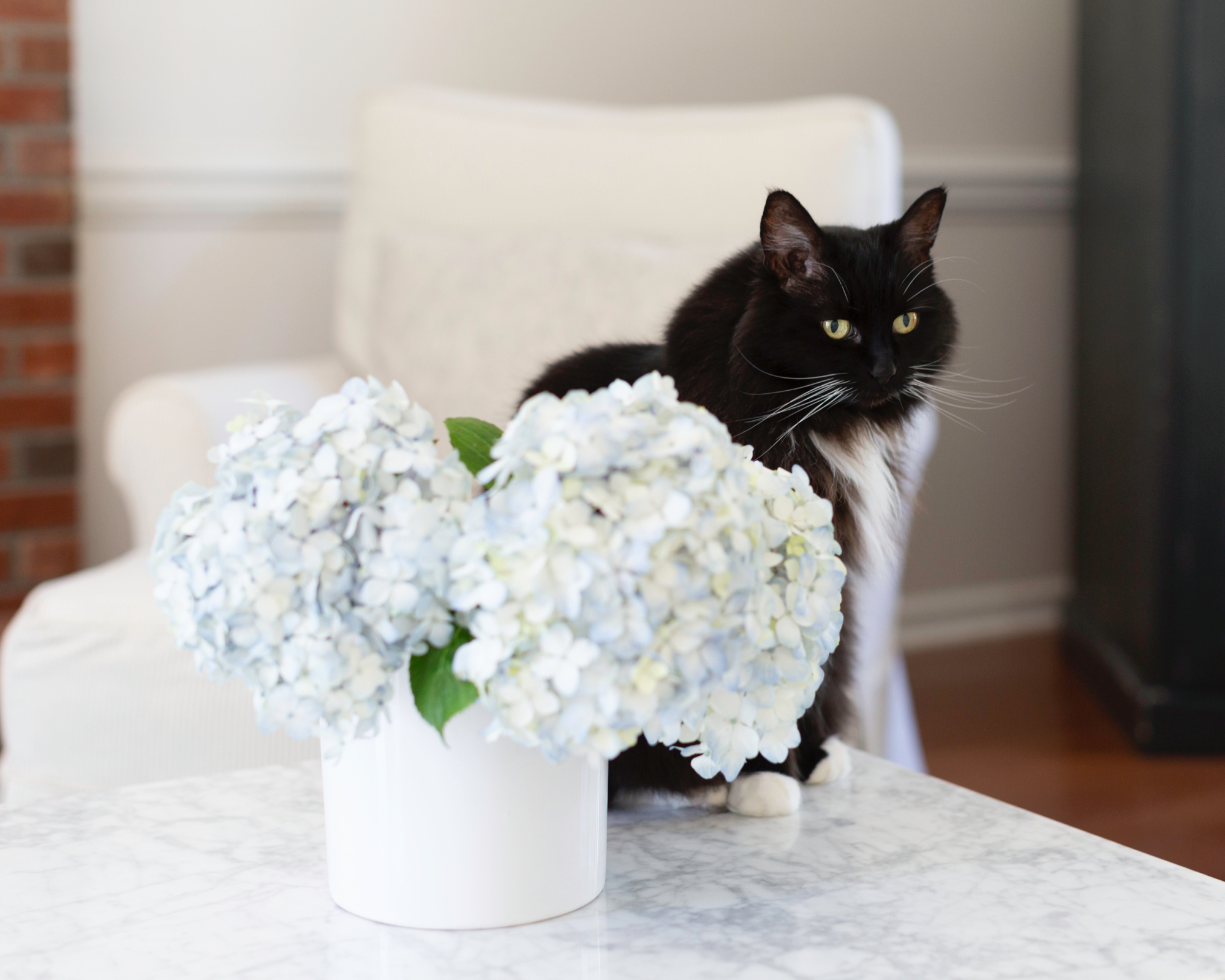Are Hydrangeas Poisonous To Cats? How To Keep Kitties Safe Around These Common Flowers
There are so many gorgeous varieties of hydrangea to add showy color to your garden, but are hydrangeas poisonous to your cats? Learn more to keep kitty safe.

Amy Draiss

Hydrangeas are beautiful flowering perennial shrubs that we use as ornamental accents to the landscape, but what if Fluffy eats some of the plant? Are hydrangeas toxic to cats?
Anyone who owns a cat knows that plants are special playgrounds for the feline. There are so many things to play with, and eat which might make a cat parent wonder about hydrangeas and cats are hydrangeas safe for my cats?
Growing hydrangeas in outdoor gardens is very popular and there are more than 75 varieties to choose from. Keep reading to learn if hydrangeas are toxic to cats.
Are Hydrangeas Poisonous To Cats?

Commonly found in gardens and grown as ornamental houseplants, hydrangeas are toxic. All parts of the plant are toxic, but especially the leaves and flowers which are also the parts that Fluffy the cat will be noshing on.
Also called the hortensia plant, hydrangeas share the same toxin found in Prunus species such as apricot, cherry, peach, and plum trees. This toxin can also be found in the seeds of apples, pears, and in almonds.
Symptoms Of Hydrangea Poisoning In Cats
The toxin, amygdalin, is a Cyanogenic glycoside which when crushed (in this case chewed) triggers cyanide poisoning. This fast-acting toxin enters the bloodstream quickly and hinders the body's ability to uptake oxygen.
With plants that are poisonous to cats, dogs, and horses (sometimes kids too), the toxicity usually manifests as gastrointestinal issues like vomiting or diarrhea. If ingested, your cat may also seem listless, confused or depressed.
Sign up for the Gardening Know How newsletter today and receive a free copy of our e-book "How to Grow Delicious Tomatoes".
What To Do If Your Cat Eats A Hydrangea

The good news is that kitty would have to ingest quite a bit of the plant for the toxin to affect it. If you witnessed the ingestion of the hydrangea, call your veterinarian. It is helpful to have a sampling of the plant. You can also contact an online vet for advice. Or call the pet poison hotline for your area.
Symptoms usually appear after about 30 minutes from ingestion.
Your vet may do blood work and a urine test to verify the toxin is indeed a hydrangea plant since the symptoms of poisoning from hydrangeas mimics other gastrointestinal issues.
If the cat comes in within 30 minutes of eating the hydrangea, your vet may induce vomiting. Do NOT induce vomiting at home.
If the case is severe, the vet may keep the cat overnight for observation or provide intravenous drip to keep kitty hydrated. An IV may also be used to help flush the toxin out of the cat’s body.
Otherwise, if the cat has nominal symptoms the vet will likely send you both home with medication to ease gastrointestinal issues and instructions to keep the cat out of the hydrangea!
How To Keep Cats Safe Around Hydrangeas

It is hard to keep pets safe in the home and garden. Steps need to be taken to protect them from potential dangers, including hydrangea toxicity. So what can you do to protect Fluffy?
Well, if the hydrangea is an inside houseplant, I suggest regifting it. If the plant is outside, you can install a motion activated sprinkler. The hydrangea could be covered in netting – although my cat would just climb up the netting.
You can also keep the plant pruned to a height that the cat is less interested in the shrub. Again, my cat would not care one iota.
Lastly, and for many this really is a last resort and a hotbed of controversy for cat owners everywhere, keep your fur baby inside.
For more extensive lists of plants poisonous to cats, please visit: ASPCA: Toxic and Non-Toxic Plant List for Cats
Frequently Asked Questions
What happens if a cat eats a hydrangea?
All parts of hydrangeas are toxic. Luckily, a cat would have to ingest quite a bit for it to be in danger. Usually the symptoms are gastrointestinal accompanied by drooling, lethargy, and confusion. Call or go see your vet if you suspect your cat has eaten any part of a hydrangea.
Are hydrangeas pet safe?
Nope, hydrangeas are not pet or people safe. All parts of the plant are toxic and can result in cyanide poisoning. If you suspect your pet has ingested any part of a hydrangea, call or go to your vet immediately.
Do hydrangeas attract cats?
As a cat owner, I know that everything attracts my cat, so the answer is yes, hydrangeas attract cats. Anything that has springy boughs, leaves and flowers to chew on and bat at, and foliage to hide under is an attractant to a cat.

Amy Grant has been gardening for 30 years and writing for 15. A professional chef and caterer, Amy's area of expertise is culinary gardening.
- Amy DraissDigital Community Manager